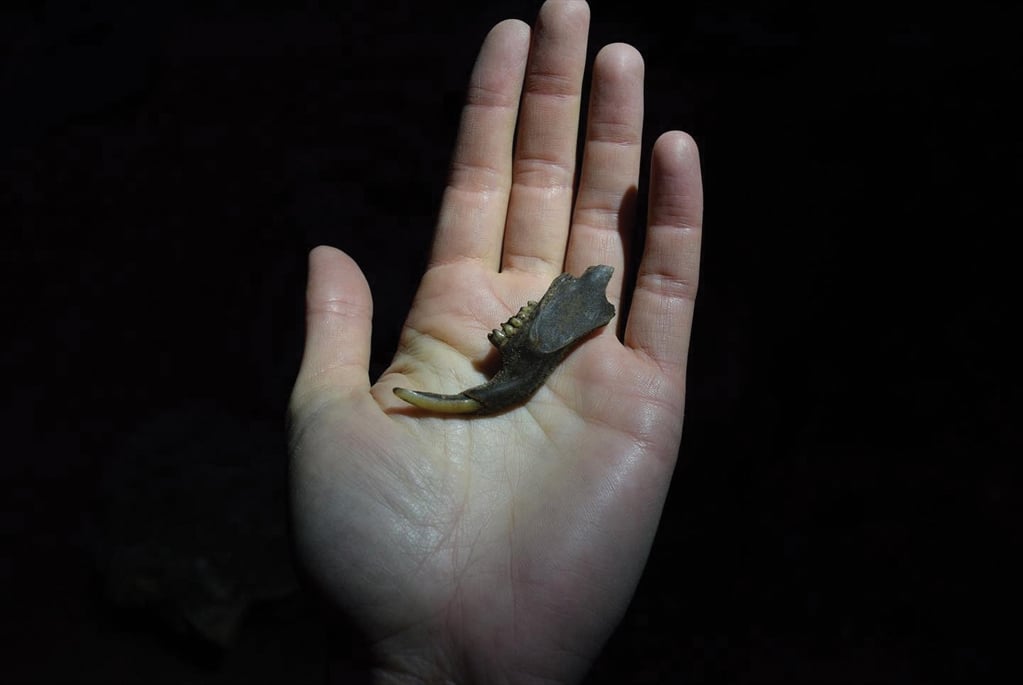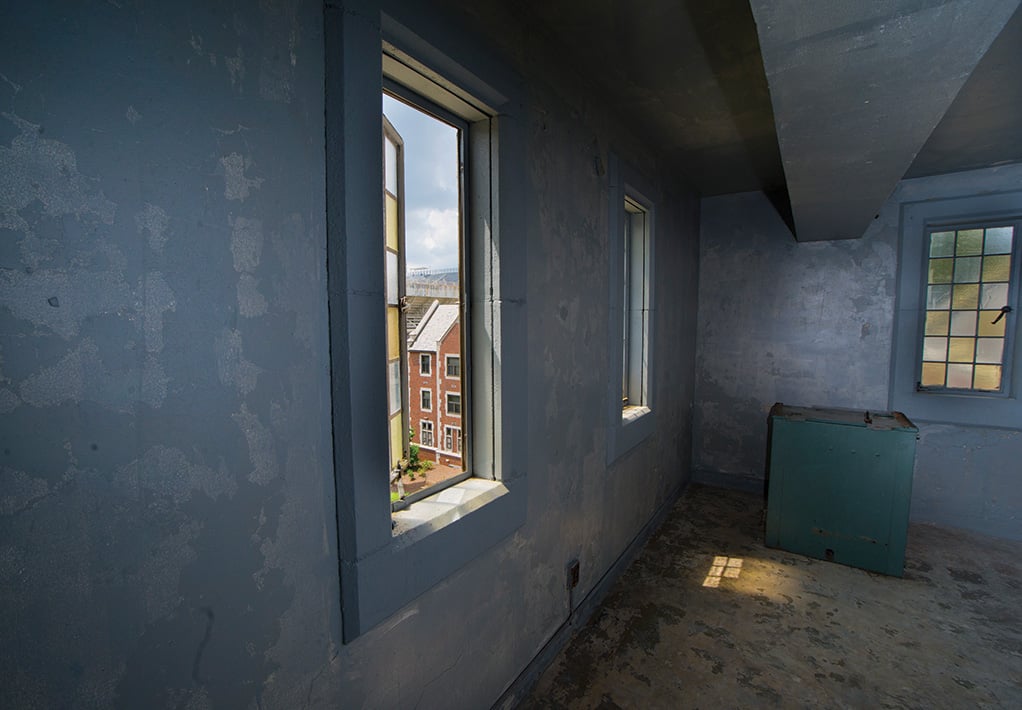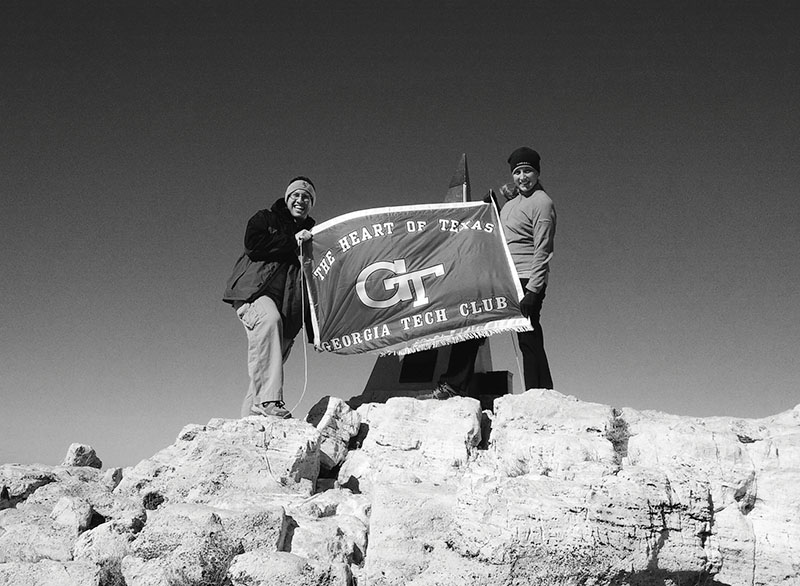The Kind of Grit That Can't Be Stopped
By: Tony Rehagen | Categories: Alumni Association News
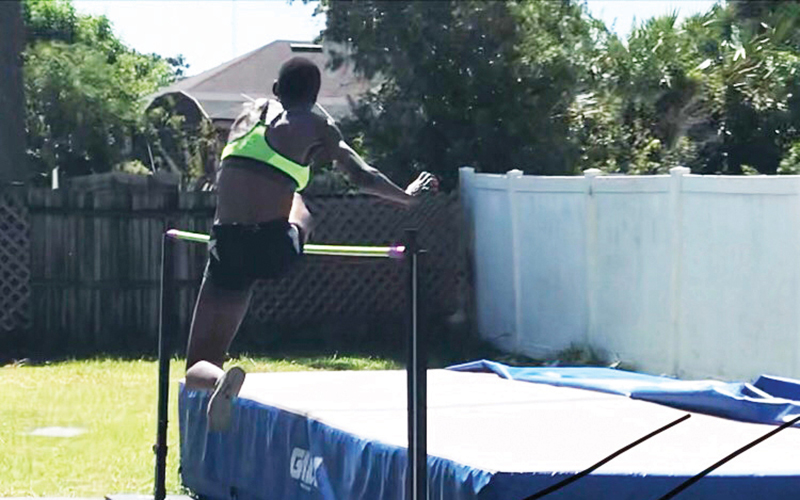
This Spring, Chaunte Lowe started a new home improvement project. She went to The Home Depot, bought some plywood, wall brackets, and rubber, and took to the backyard of her Florida house. She wasn’t building the floor of a clubhouse for one of her three children or a crude patio for herself. Lowe was putting together a makeshift approach for her high-jump gear so she could train while in lockdown.
For Lowe, making the U.S. Olympic Team bound for Japan is about much more than fulfilling her own professional ambition. In fact, after tying for seventh in the 2017 national championships, Lowe says she was all but done with track and field. But then, in August 2018, Lowe found a lump the size of a grain of rice on her breast. Eventually doctors diagnosed it as an early stage of an aggressive form of cancer. Six rounds of chemotherapy and a double mastectomy left Lowe cancer-free. That’s when the surgeon performing her reconstructive surgery urged her to aim for a fifth Olympiad. “He told me that people don’t realize how many young, skinny, and fit people he sees with cancer,” says Lowe. “He said, ‘If you go to the Olympics, your story is going to save lives.’”
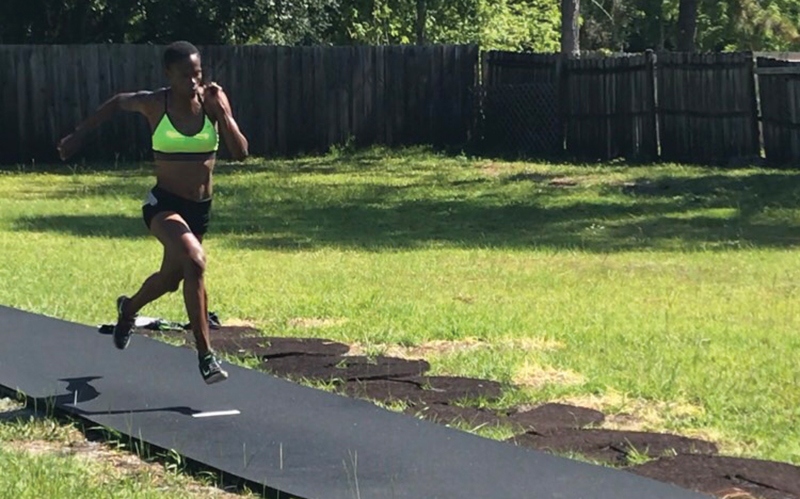
Lowe’s story began at Georgia Tech in 2002. She had come all the way from Riverside, Calif., to not only pursue a track career but also to challenge herself in the classroom. “Before students even get there, they’ve made the decision to come to Tech knowing the academics are going to be challenging while trying to compete at the NCAA Division I level,” says Alan Drosky, women’s track and field head coach for the Yellow Jackets. “A lot of young people have ambition to be excellent in everything. But Chaunte’s drive to actually reach her goals is not common at all.”
That competitive fire enabled Lowe to keep her grades up while excelling on the track. At the collegiate level, that meant helping the team in any way possible. Even on an ACC Championship Team, Lowe would score in the long jump, hurdles, and triple jump. “She even wanted to run the anchor leg of the relay race if we’d let her,” says Drosky. “She wanted to line up in every event we would put her in.”
Meanwhile, on an international level, Lowe focuses her energies on the high jump. And with the guidance of world-renowned high jumper and Georgia Tech jumps coach Nat Page, she would become a world champion and American record holder (which she set a mere 10 months after giving birth to her second child). But Olympic glory was a bit harder to come by. Lowe says she had worked so hard to make her first Olympic team in 2004 that by the time the then-sophomore got to Athens, she was overwhelmed by the actual competition. She finished a disappointing sixth in both 2008 Beijing and 2012 London. Four years later in Rio, she knocked the bar off with the heel of her foot on her last jump and barely missed the podium, coming in fourth.
Finally, in 2017, the International Olympic Committee announced that, after reviewing samples from drug tests taken prior to the Beijing games, three athletes had tested positive for banned substances. The three were disqualified, lifting Lowe into third place. She flew to Los Angeles with her family and Coach Page to receive her bronze medal that November. Less than a year later, she had cancer.
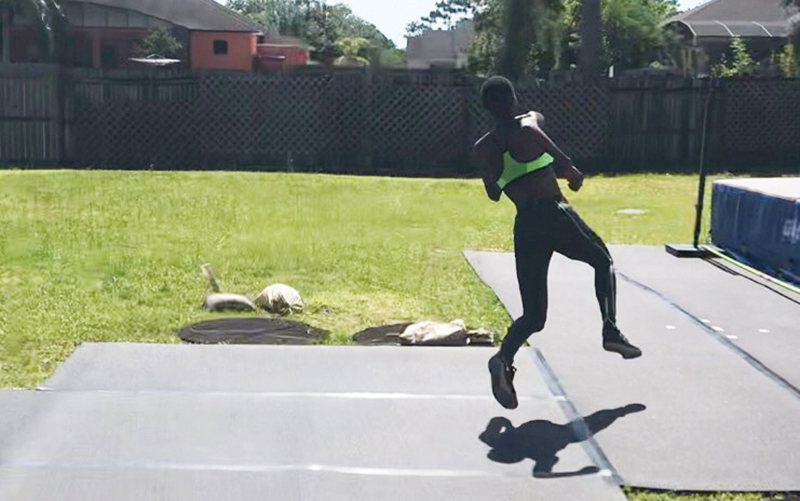
Lowe doesn’t pretend that the diagnosis didn’t frighten her. But she says she reacted the only way she knew how—the way she had learned in college. She did her research, made a plan, put together the best team of doctors, and put herself in the best position to overcome the disease. After doing all that, making a fifth Olympics might not seem as impossible as it once had.
“It’s not going to be easy,” says Page, her old coach. “But she knows she can go through it; she’s done it before. And going through breast cancer might have given her a sense of what she’s really capable of. If there’s anybody that can do it, it’s her. I won’t ever doubt her.”
Page even thinks that the yearlong delay for the Tokyo games might help Lowe by giving her extra time to prepare herself and get back to full strength—if she can just find a way to train. Because of her chemotherapy, Lowe’s immune system is compromised, making her at a higher risk of developing Covid-19.
So she has acquired some weights and workout equipment for home workouts. And, of course, she’s building her own high jump in the backyard. Here, she’ll train, take care of her family, and prepare as best she can to tackle any and all challenges that might await.
“There was something about the fight I learned at Georgia Tech,” says Lowe. “You don’t crumple and cry. You find a way to get it done. You find a way to win.”
